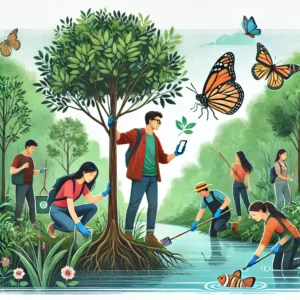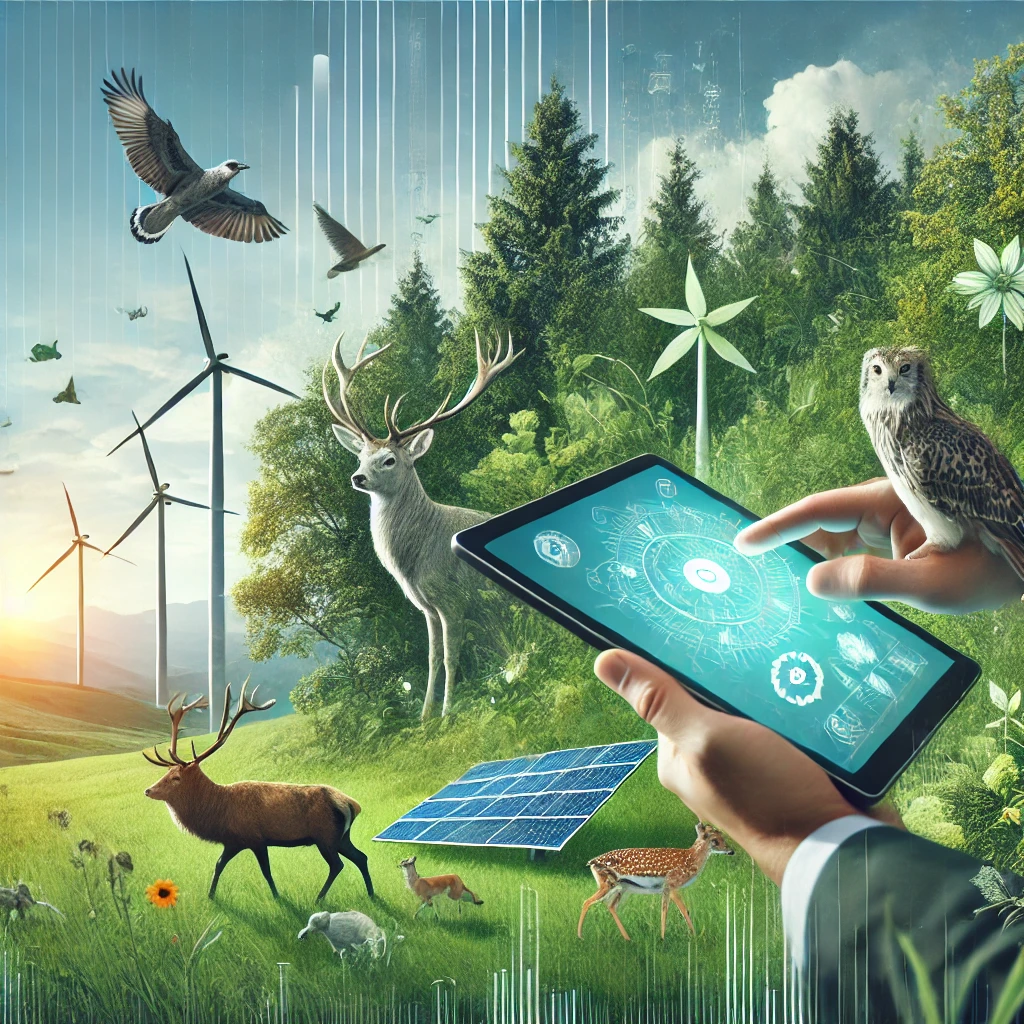From VoicesofConservation.org Blog: Exploring the Modern Impact of Conservation
In a world facing rapid environmental change, the role of conservation has never been more crucial. From VoicesofConservation.org blog, we learn about the diverse efforts to protect ecosystems, species, and the planet. This article will explore several key areas that are vital to understanding the future of conservation, including innovative technologies, the involvement of youth, the economic impact of conservation, and more. By diving into these topics, we hope to highlight the importance of conservation and inspire action.
The Power of Technology in Conservation
![]()
Technology is transforming conservation efforts around the globe. From satellite monitoring to drones tracking endangered species, new tools allow conservationists to gather data and take action faster than ever. For example, AI is now being used to analyze massive amounts of environmental data, predicting patterns in wildlife movement, deforestation, and climate change impacts.
Drones are becoming invaluable in tracking poachers, monitoring endangered species, and surveying large, difficult-to-reach areas like rainforests and savannahs. These technologies help scientists and conservationists make informed decisions and respond quickly to emerging threats. From VoicesofConservation.org blog, it’s clear that technology is making a difference in how we approach conservation today.
Youth in Conservation

The younger generation is stepping up in the fight for conservation. More than ever, young people are becoming leaders in environmental advocacy, from organizing global climate strikes to spearheading local conservation projects. From VoicesofConservation.org blog emphasizes the need to engage youth as they bring fresh perspectives and energy to these efforts.
Many schools and universities now offer programs focused on conservation, inspiring the next generation of scientists and activists. Students are developing innovative solutions to environmental challenges, and their passion for protecting the planet is driving real change. Youth-led initiatives such as tree planting drives and awareness campaigns are key to the future of conservation.
Economic Impact of Conservation
Conservation efforts don’t only protect ecosystems—they also have significant economic benefits. Preserving forests, for example, helps maintain ecosystems that contribute to agriculture, tourism, and even the fishing industry. From VoicesofConservation.org blog highlights how successful conservation efforts can lead to thriving ecotourism, creating jobs and sustaining local economies.
However, balancing economic development and conservation can be challenging. Industries like mining, logging, and agriculture can contribute to habitat loss and pollution. By integrating sustainable practices, businesses can reduce their environmental impact while still supporting economic growth. Conservation finance is an emerging strategy that encourages investments in projects that benefit both the environment and the economy.
Conservation in Urban Environments
When we think of conservation, we often picture wilderness areas or national parks. However, cities and urban areas also play an essential role in conservation. Urban green spaces, such as parks, community gardens, and rooftop gardens, contribute to biodiversity by providing habitats for plants, insects, and small animals. From VoicesofConservation.org blog encourages readers to consider how city planning and development can incorporate conservation efforts.
Green infrastructure, such as rain gardens and permeable pavements, helps manage stormwater, reduces flooding, and mitigates the effects of climate change. These efforts not only create healthier urban environments but also contribute to global conservation goals.
Conservation Funding Strategies
One of the most significant challenges facing conservation efforts is securing sufficient funding. Many projects rely on donations, government grants, or non-profit organizations for financial support. But new strategies, like conservation finance and eco-tourism, are emerging as innovative ways to fund projects that protect biodiversity and restore ecosystems.
From VoicesofConservation.org blog discusses how conservation finance, which involves investing in projects with positive environmental outcomes, is gaining traction. Investors are recognizing that a healthy environment can lead to long-term financial returns. Crowdfunding platforms are also helping conservationists raise money for specific projects, engaging the public directly in the fight for environmental protection.
Role of International Organizations
International organizations play a pivotal role in coordinating and promoting conservation efforts worldwide. Groups like the United Nations Environment Programme (UNEP), World Wildlife Fund (WWF), and the International Union for Conservation of Nature (IUCN) work to set global conservation standards, fund projects, and bring together governments, non-profits, and local communities.
From VoicesofConservation.org blog emphasizes the importance of collaboration across borders to address the global nature of environmental issues. These organizations help ensure that conservation efforts are aligned with international agreements, such as the Convention on Biological Diversity and the Paris Agreement.
Indigenous Knowledge and Conservation
Indigenous communities have been stewards of the environment for centuries, and their traditional knowledge offers invaluable insights into sustainable resource management. From VoicesofConservation.org blog regularly features the ways indigenous knowledge contributes to conservation, from protecting sacred lands to preserving biodiversity in ways that modern science is only beginning to understand.
By respecting and integrating indigenous knowledge into global conservation strategies, we not only protect ecosystems but also preserve cultural heritage. Indigenous communities are often the first to experience the direct effects of environmental degradation, making their voices crucial in the global conservation dialogue.
Conservation Success Stories
Throughout the world, conservation efforts have achieved remarkable successes. The recovery of species like the bald eagle in North America and the giant panda in China offers hope and demonstrates what can be accomplished with dedication and resources. These stories are celebrated from VoicesofConservation.org blog as they inspire individuals and organizations to continue fighting for the environment.
Coral reef restoration in the Caribbean, rhino conservation in Africa, and community-led reforestation projects in Southeast Asia are examples of how concerted efforts can reverse environmental damage. These success stories show that conservation is not only possible but effective when done collaboratively.
The Future of Conservation
As we look to the future, the need for comprehensive conservation efforts is more critical than ever. Climate change, habitat destruction, and species extinction are accelerating, but new opportunities are emerging. From VoicesofConservation.org blog, it’s evident that conservation efforts will increasingly rely on innovative technologies, stronger global cooperation, and the involvement of future generations.
Sustainable agriculture, renewable energy, and reforestation projects will play a pivotal role in mitigating climate change and restoring ecosystems. Additionally, involving local communities and respecting indigenous knowledge will ensure that conservation efforts are inclusive and effective.
How You Can Get Involved
Conservation isn’t just for scientists or government organizations. Everyone can play a part in protecting the planet. From VoicesofConservation.org blog, readers are encouraged to take small steps, like reducing plastic use, supporting sustainable products, and volunteering for local conservation projects.
Simple actions like planting trees, reducing waste, or participating in community clean-ups can make a significant impact. Advocacy is another powerful tool—raising awareness about environmental issues within your community or social networks can inspire others to get involved.
Conclusion
Conservation is a collective effort, and platforms like from VoicesofConservation.org blog are essential for spreading awareness, inspiring action, and providing the resources needed to protect our planet. By focusing on innovation, community engagement, and global cooperation, we can ensure that conservation efforts continue to grow and evolve.






